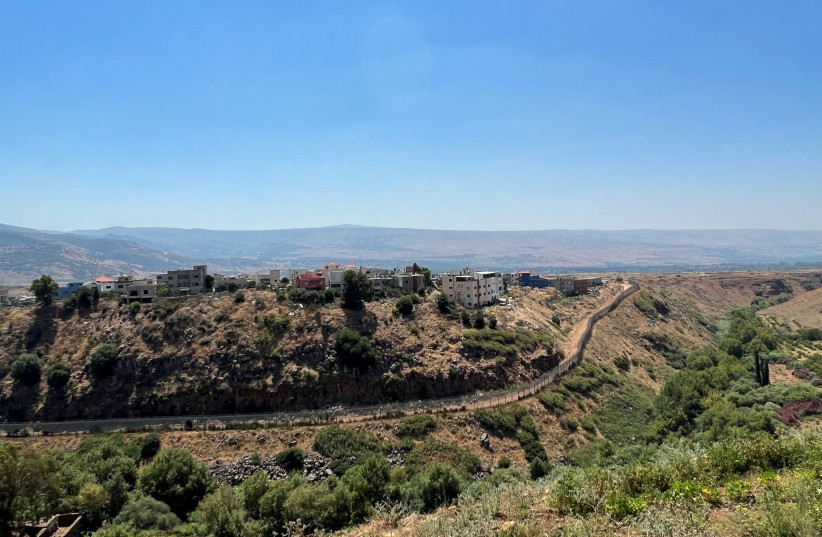On Wednesday, a disturbing incident took place on Israel’s northern border with Lebanon near Metulla, as a group of individuals approached the security fence, hurling rocks and igniting a fire in close proximity. Soldiers of the Israel Defense Forces were forced to fire warning shots to disperse the rioters.
The event is just one in a series of escalating acts instigated by the Iranian-backed Hezbollah. Despite Israel’s unwavering commitment to safeguard its sovereignty and protect the security fence, Hezbollah persists in making dangerous threats. It is imperative for Israel to deter Hezbollah from further provocative actions while actively collaborating with international partners, particularly the United States, to expose and condemn Hezbollah’s illegal activities.
The recent rioting at the border follows Hezbollah’s illegal establishment of several tents within the Mount Dov area. Furthermore, the group has coerced the Lebanese government into asserting additional claims on Israel, demanding the removal of a fence securing the village of Ghajar.
On Wednesday, Hezbollah’s leader, Hassan Nasrallah, increased the tension by issuing further threats, warning of potential retaliation if Israel attempts to dismantle the tents.
These threats coincided with the commemoration of the 2006 Second Lebanon War, during which Hezbollah fired rockets into northern Israel, terrorizing civilians and necessitating Israel’s subsequent ground incursion into Lebanon. The war also served as the catalyst for the development of the Iron Dome air defense system, which has since intercepted thousands of rockets, with the majority originating from Gaza.

Hezbollah tents on Mount Dov escalate tensions
Hezbollah’s audacious decision to erect tents in Mount Dov is part of a troubling pattern of increasingly hostile behavior. Earlier this year, the group facilitated an operative’s infiltration into Israel; the terrorist proceeded to plant an improvised explosive device near the Megiddo junction.
In April, Hezbollah enabled Hamas to launch 34 rockets from Lebanon into northern Israel during the Passover holiday. Additionally, in early July, an anti-tank missile was launched from Lebanon, with shrapnel discovered near Ghajar. Against this backdrop of escalating tensions, US envoy Amos Hochstein this week met with Prime Minister Benjamin Netanyahu, underscoring the gravity of the situation in the North.
Israel has diligently pursued diplomatic avenues to persuade Hezbollah to remove the tents, yet the Lebanese government, backed by Hezbollah, insists on reshaping the border. It is now evident that the tents are more than mere provocations and tests of Israel’s resolve; they represent an attempt to establish a fait accompli and leverage it for concessions.
This is a familiar tactic employed by Hezbollah and the Lebanese government. During negotiations for last year’s maritime deal with Lebanon, for instance, Hezbollah similarly resorted to threats of conflict if an agreement was not reached, even deploying drones to threaten energy installations off the coast.
It appears that Hezbollah remains undeterred and exhibits a sense of impunity. These challenges, coupled with the utilization of proxies like Palestinian Islamic Jihad, underscore Iran’s multifaceted efforts to threaten Israel on various fronts.
Compounding these threats is the backdrop of domestic political turmoil in Israel, which witnessed massive protests this week, dubbed the “day of disruption.” Israel prides itself on its robust democracy, which serves as the bedrock of our strong military and defense industry. Consequently, our democratic values are intrinsically linked to our partnerships with the West, particularly the United States. These intertwined issues bear significance, as the ongoing domestic crisis has emboldened Iran and its proxies to perceive vulnerabilities and test Israel’s mettle.
Israel seeks to deter these provocations, and it is imperative for our Western allies to stand with us in demonstrating unequivocally that Hezbollah’s actions are intolerable.
While Israel places its faith in international agreements and diplomacy, history has taught us that such faith does not always yield the desired outcomes. The 2000 Israeli withdrawal from Lebanon, for instance, was met by Hezbollah’s arming and subsequent attack on Israel in 2006.
Time is of the essence as provocations continue to unfold on Israel’s northern border. Hezbollah must be deterred, and it is crucial for Israel to collaborate closely with the United States and the broader Western community to achieve this objective. Together, we must send a resolute message that further attempts to provoke us along the border will be met with a robust and unwavering response.
